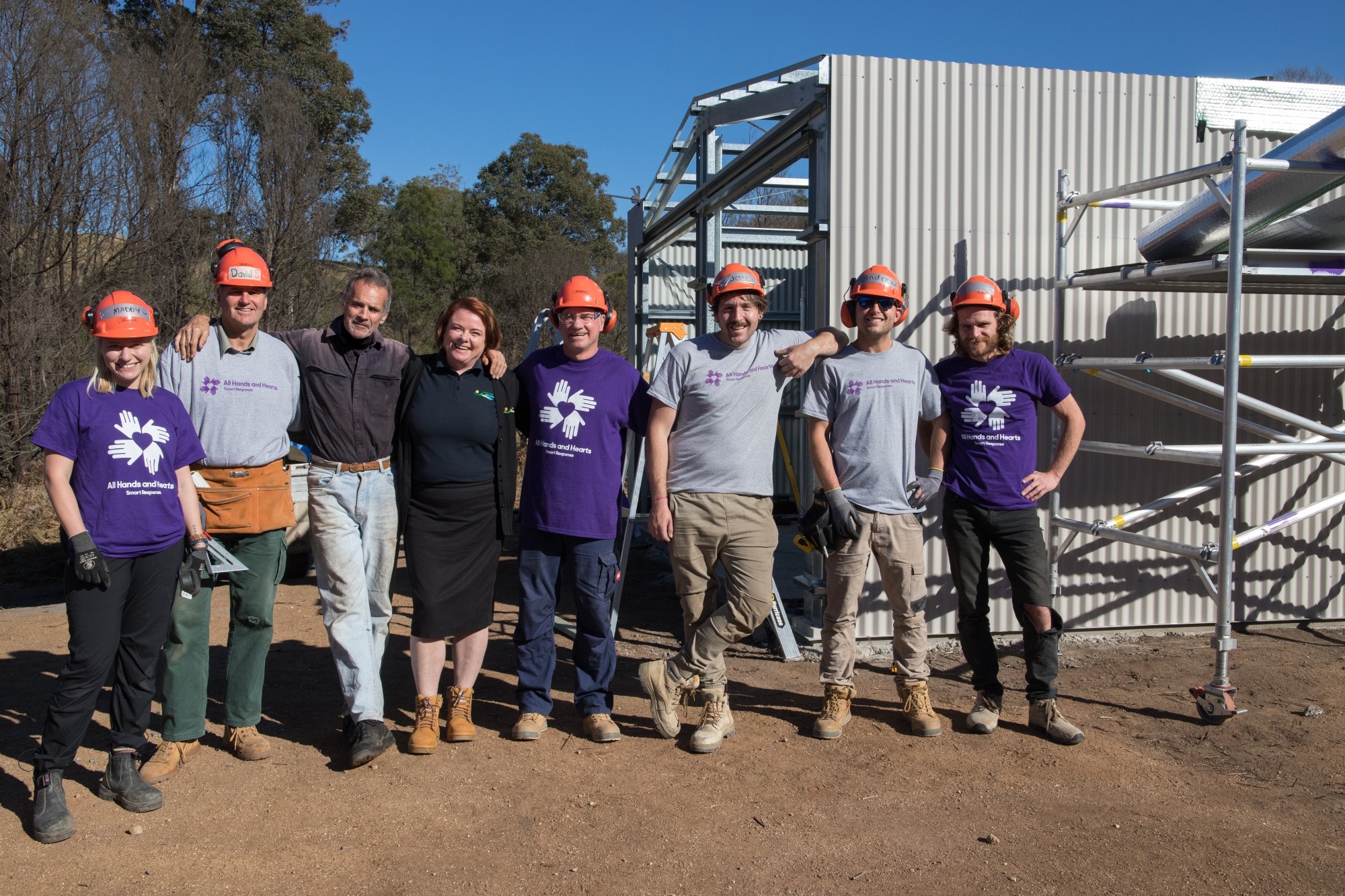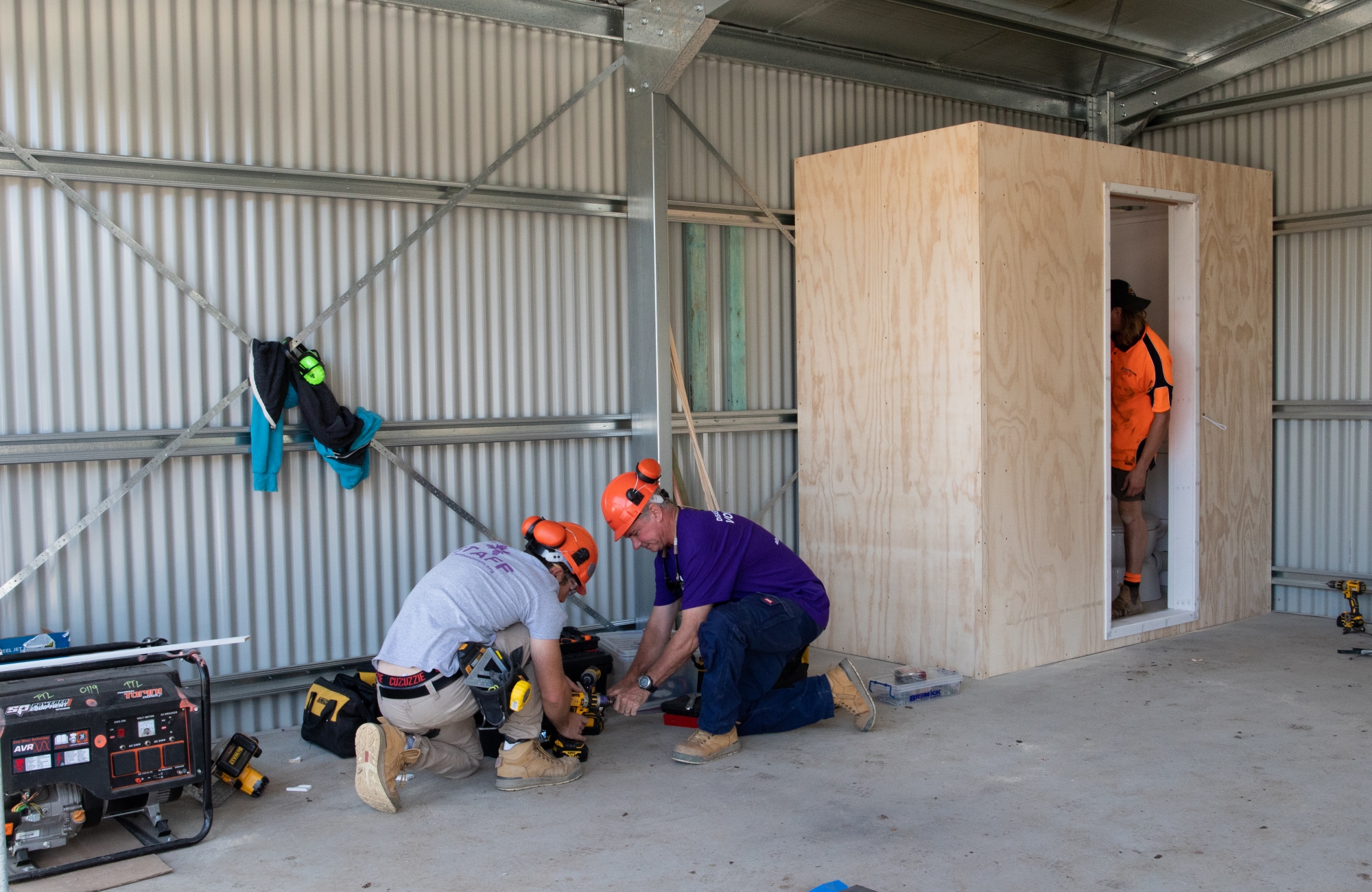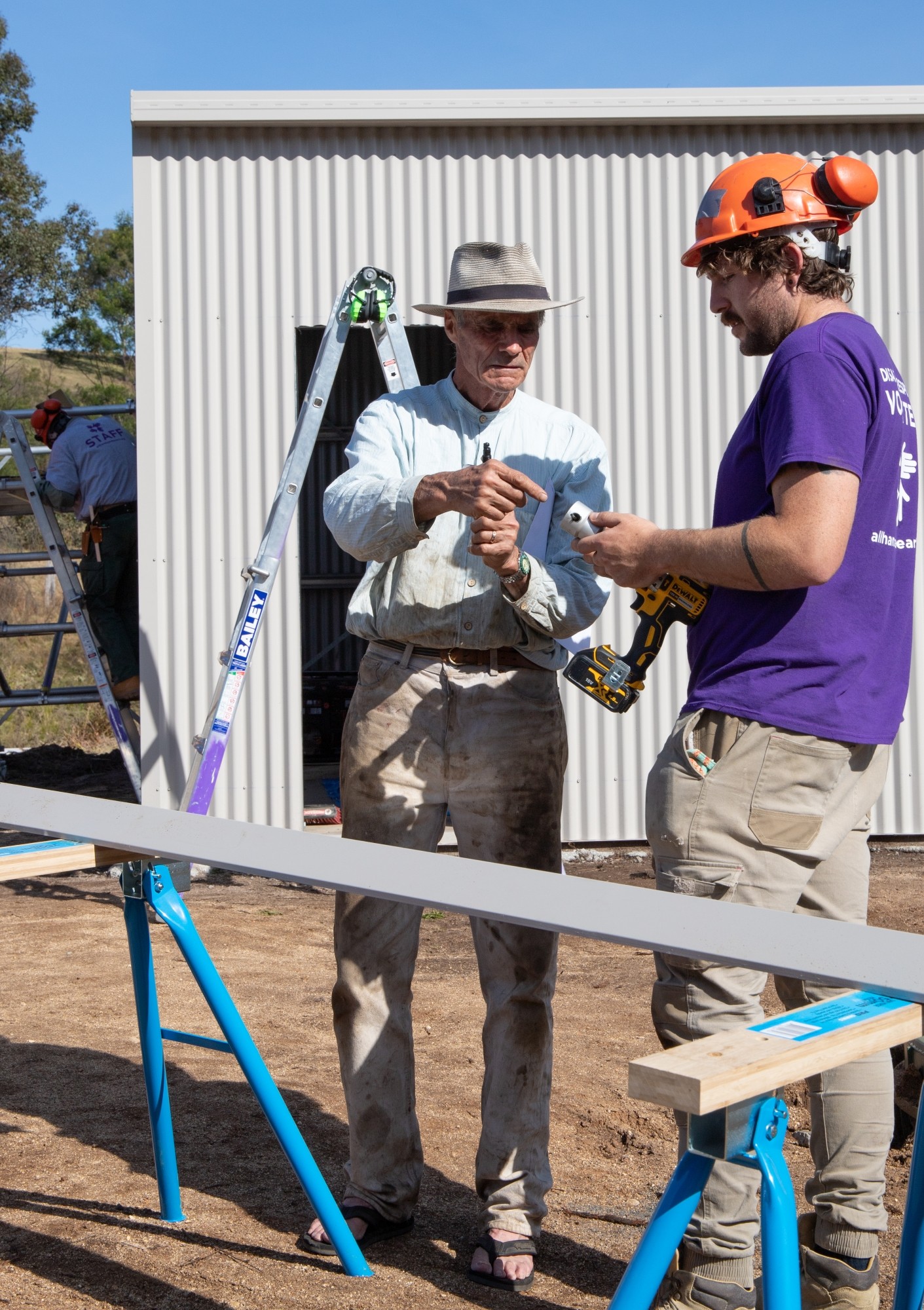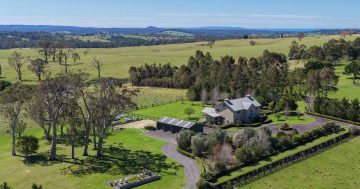
Dean, pictured with Bega Valley Council’s Kelly McDowall and All Hands and Hearts volunteers, has received a bathroom unit through the Water and Sanitation project. (Photo taken before COVID-19 restrictions). Photo: BVSC.
As communities enter the 2021/22 bushfire season, some of those who lost their homes in the Black Summer bushfires are facing a second summer without proper sanitation.
Having made the choice to live on their land in caravans, pods and sheds, many don’t have basic necessities such as water storage or a flushing toilet or shower.
This is starting to change through the Bega Valley Water and Sanitation project – a partnership between the Rotary Club of Pambula that began providing water tanks, the Social Justice Advocates of the Sapphire Coast, All Hands and Hearts (an international volunteering organisation), St Vincent de Paul and Bega Valley Shire Council.
BVSC’s health and wellbeing recovery manager Anne Leydon said the project provides vital bathroom facilities and water storage for those who need it.
“So far, we’ve been able to provide water and sanitation packages for five families who lost their homes in the Black Summer bushfires, with another four packages in progress,” Ms Leydon said.
“The support we’ve received so far is unbelievable, but we know there are at least 14 other people or families that still need these facilities.”
The packages include water tanks, septic systems, toilets and flatpack bathrooms, along with small sheds to house the bathrooms and capture water where needed.
Murray and Ali, who lost their home in the Black Summer bushfires, said the Bega Valley Water and Sanitation project had been life-changing, helping them make significant progress on their recovery journey.

A sanitation unit being installed. Photo: BVSC.
“Being nominated and receiving the sanitation unit has been a game-changer for us and our bushfire recovery,” they said.
“Like others, we have been living from a caravan and a Minderoo Pod for the last 18 months. Living off-grid with no connection to mains power or water has been expensive – with a huge amount of fuel needed to run a generator – the sanitation unit will reduce this cost dramatically.
“With instant gas hot water, shower, toilet and septic tank for sewage control, it gives us a weatherproof area to retreat when the weather turns bad and to also catch water from the roof straight into the attached water tank.
“Carrying water by bucket caught off the caravan annexe then pouring it into an IBC (container) for the outdoor shower is not easy. It might sound romantic – showering outdoors, being in nature – but it’s far from that; with strong winds and pelting rain, it’s purely survival. The sanitation unit moves us from a survival situation to a more normal way of living, allowing us the security and freedom to heal from this monstrous natural disaster.
“We are so very grateful to all of the volunteers and parties involved who always come with a smile and a warm heart. It has been a huge step forward in our recovery. We sincerely hope others who are on the edge can also be assisted through this wonderful program. From our hearts to yours, thank you.”
All Hands and Hearts Australian Program Director David Summers said the project was not only providing life-changing facilities, but also a social connection many have not had since the fires.
“Aside from the physical structures that we are helping to provide for property owners, we feel privileged that we are providing hope, helping people recover from trauma and assisting them to move forward with their lives,” Mr Summers said.

Dean, pictured with a volunteer from All Hands and Hearts, has received a bathroom unit through the Water and Sanitation project. Photo: BVSC.
“One property owner mentioned that after living in a caravan for so long, the installation of the sanitation unit has been life-changing and they feel better equipped to move forward in life. Others have mentioned the great company we provide while working on properties, providing a social outlet that many have not had since the fires.”
Bega Valley Shire Council’s Recovery, Rebuilding and Resilience Project Lead Chris Horsburgh, said the project was making a real difference.
“Shortages of building materials and skilled tradespeople, as well as significant delays due to COVID-19 and the need to meet current fire safety rules for building, are significantly extending the time it’s taking for families to get back into their own homes,” Mr Horsburgh said.
“Each complete unit costs around $35,000, depending on the facilities already in place. So far, we’ve been able to fund that through financial donations as well as in-kind support, materials and discounts from a number of local and regional businesses and tradespeople – but there are more people that need help.
“If you have time or can contribute financially, please contact council and let us know how you can help.”
If you are interested in supporting the project through a donation, volunteering or in-kind support, please contact the Bega Valley Recovery Support Service on 6499 2345.








